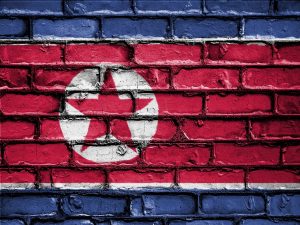The Diplomat author Mercy Kuo regularly engages subject-matter experts, policy practitioners, and strategic thinkers across the globe for their diverse insights into U.S. Asia policy. This conversation with Kongdan Oh ̶ independent scholar; former senior researcher at RAND Corporation and Institute for Defense Analyses; and author of numerous publications, including “North Korea in a Nutshell“ (June 2021) ̶ is the 279th in “The Trans-Pacific View Insight Series.”
Comment on North Korea’s strategic calculus toward the Biden administration.
American presidents come and go, but the three generations of the Kim regime have remained constant in their hostility toward the United States. North Korea says that until such time as the United States makes a “bold switchover” in its North Korea policy, replacing hostility with friendship, relations between the two countries cannot improve no matter what deals are made or agreements signed. Every American president for the last 30 years has insisted that North Korea end its nuclear weapons program, a demand that North Korea considers to be overtly hostile. Consequently, it is unlikely that the Kim regime will adopt a new calculus toward the Biden administration. The regime will continue to parry American proposals until North Korea has a sufficiently credible nuclear deterrent to discourage the United States from interfering in North Korean affairs, or until North Korea is able to win over South Korea and present a united front against the United States.
How does North Korea fit into the U.S.-China geopolitical rivalry?
For the United States, North Korea constitutes a military threat in terms of its conventional forces poised to attack South Korea and its weapons of mass destruction. For China, North Korea is merely a nuisance: a minor economic burden, a potential source of military and social instability on China’s border, and an embarrassment as a badly-run communist-style state. China would like to see a unified Korean nation friendly toward China and within China’s economic orbit. The United States would like to see a unified Korean nation friendly toward itself and its Japanese ally. North Korea remains fiercely independent, hostile toward the United States, and suspicious of China. North Korea’s greatest usefulness for China is to give Beijing the opportunity to play the role of “elder statesman” by mediating U.S.-North Korea disagreements.
What is North Korea’s impact on U.S.-South Korea-Japan relations?
Japan is the United States’ major ally in East Asia, America’s “unsinkable aircraft carrier,” diplomatically close and hosting 55,000 American troops. South Korea is also an ally, although not as close, and hosts 38,000 troops. The United States, Japan, and South Korea form one political camp, with South Korea sometimes leaning a bit toward China and North Korea. On the other side is China, Russia, and North Korea, although North Korea does not consider itself to be part of any camp.
North Korea has the potential to be a key political player in the region. If it warmed up to South Korea, it might be able to move South Korea away from the U.S.-Japan alliance and bring it into the China-North Korea orbit. And yet, North Korea has always rebuffed South Korea. This counterintuitive strategy is dictated by the Kim regime’s long-standing claim that the South Korean government is illegitimate, and by the need to prevent the North Korean people from developing relations with their more successful neighbors to the south.
How stable is North Korea’s domestic political situation?
Since its founding in 1948, the North Korean state has lived under the thumb of three generations of the quasi-divine Kim family. The leader controls the country’s politics and military and dominates all aspects of society except the evolving (and illegal) people’s economy. Elite supporters, especially among the top generals, are closely watched. The other 24 million North Koreans do their best to ignore their leader and his appointed officials. The regime has always boasted of the country’s monolithic Kimist culture, but under the seemingly smooth surface small currents move like furiously paddling duck feet. Given the leader’s frequent purges, it can be assumed that most of the elite fear rather than respect him. Covert rivalries exist among political and military organizations. Most North Koreans are alienated from their government. The younger generations are attracted by foreign cultures; ordinary poor North Koreans resent the rising capitalistic economic class. If the leader, the cornerstone of North Korea’s stability, dies or is incapacitated without naming a successor (as has been the case since 2012), the country could quickly dissolve into political chaos.
Identify the top strategic threats that could escalate tensions on the Korean Peninsula.
Given the apparent political stability of the Kim regime, and the stabilizing influence of its quasi-allies, China and Russia, the number of strategic threats in the next few years seems limited. The North Korean people have long endured economic hardships and will die rather than rebel if living conditions worsen. The Kim regime frequently issues dire threats against the United States, Japan, and South Korea, but knows better than to carry them out. The United States has absolutely no appetite for another Korean conflict. If the Kim regime tests many long-range missiles or thermonuclear weapons, the United States might be tempted to take limited military action. Likewise, a North Korean provocation against South Korea could result in escalating border skirmishes. However, the most likely cause of tensions would seem to be the death of the North Korean leader, which might be followed by a series of military coups and, finally, domestic chaos that invites foreign intervention from South Korea and perhaps even from China.

































